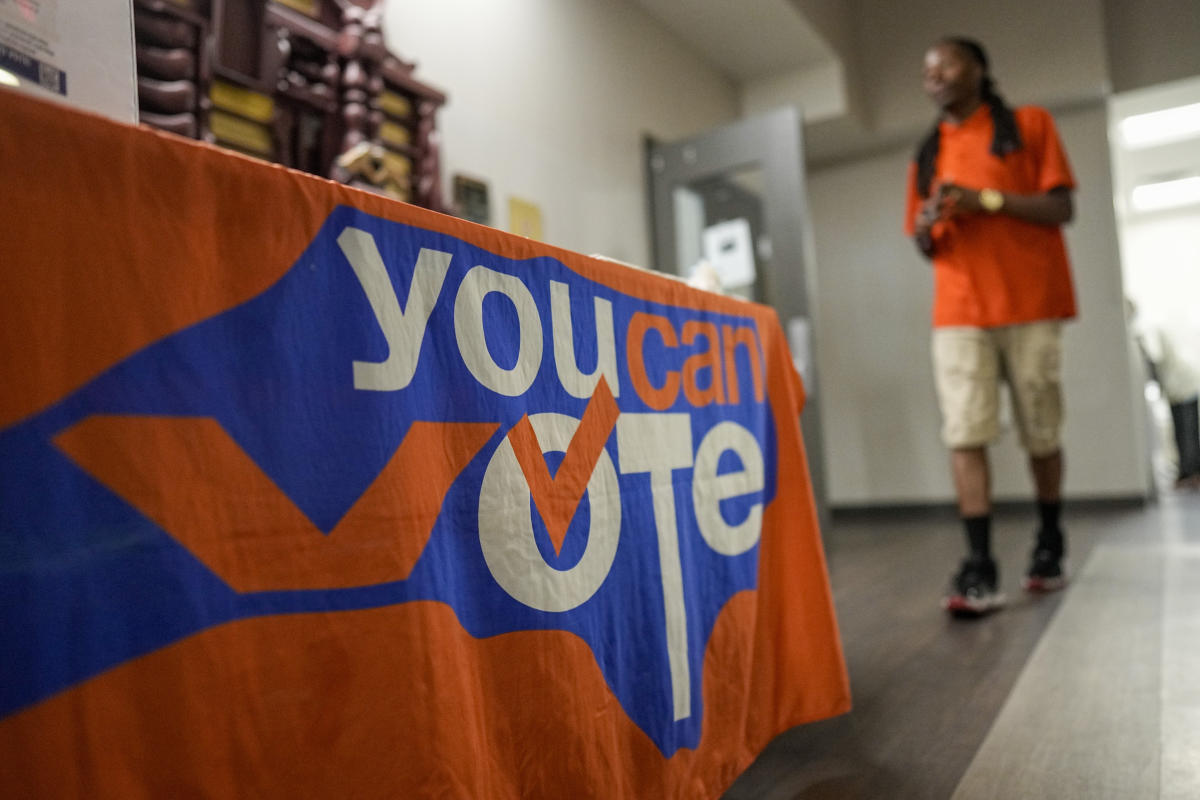Raleigh, N.C. (AP) – North Carolina’s voter photo identification law, enacted nearly five years ago by the Republican-controlled legislature but blocked by litigation, is now being implemented during local elections that conclude next week.
Statewide and county officials report that the enforcement of the photo ID requirement has been successful during the three phases of elections that began with mail-in absentee voting in mid-August. Despite limited resources to inform the public about the changes, a very small percentage of ballots have been rejected due to the new rules.
Mecklenburg County elections director Michael Dickerson stated that the process is exceeding expectations, with the elections running smoothly. Charlotte, the second-largest county in North Carolina, is currently electing leaders for various positions such as the local school board.
However, some voter education and civil rights advocates express concerns over potential difficulties caused by the new process.
“It’s important to recognize that not all barriers to voting are readily apparent, especially for marginalized communities,” said Da’Quan Love, executive director of the state NAACP. “And we will never know how many people will simply choose not to vote due to these barriers.” While the state NAACP is challenging the 2018 voter ID law as racially discriminatory in a federal lawsuit, the law remains in effect as an appeals court overturned a judge’s previous decision to halt its implementation pending trial.
These low-turnout elections serve as a rehearsal for the full implementation of voter ID in 2024, when over 5 million people are expected to cast ballots in close races for president and governor next November. The primaries are also scheduled for March.
According to data from the State Board of Elections, out of nearly 99,000 votes cast by mail or in person during the primary and general elections on Sept. 12 and Oct. 10, only 40 ballots were rejected due to voter failure to comply with the ID law. Additional ballots are being cast in the general elections for about 465 cities, towns, and villages, with an average historical turnout of around 15%.
Under the law, voters must present photo identification from nearly a dozen acceptable categories, including driver’s licenses, military IDs, and approved IDs for university students and government workers. County election offices have the capability to produce free voter ID cards. Absentee voters are required to submit a copy of a qualifying ID along with their ballots. Individuals unable to produce a photo ID in person can still cast a provisional ballot, but they must either complete an exception form or return to their local election office with an ID for their vote to be counted.
You Can Vote, a nonprofit organization assisting in the registration of North Carolina voters and educating them on voting, has observed instances where voters mistakenly believe they must possess an up-to-date driver’s license in order to vote, particularly if they have recently moved to the state. The organization is concerned that mistakes made by voters with mail-in ballots are resulting in voting delays.
“We are considering the upcoming general election in 2024 as well as next year’s primaries, and the potential increase in the number of mistakes,” said Kate Fellman, the organization’s leader.
The State Board of Elections has received funding in the state budget to support comprehensive statewide education initiatives next year, such as television advertisements and mailers.
Executive Director Karen Brinson Bell of the State Board of Elections acknowledges that different messages about voter ID will be necessary for voters who participate solely in presidential year elections compared to those who participate in municipal elections, as individuals in the latter category are often highly civically engaged.
Kimberly Sherrill, a retired university employee from Durham, described the ID verification process at an early voting site as slightly tedious but agrees with the requirement for voters to present some form of identification.
“This idea is fine. I have no problem with it,” Sherrill said.
According to the National Conference of State Legislatures, 36 states request or require identification to vote, with at least 20 of them specifically requiring a photo ID. North Carolina Republicans advocated for voter ID for over a decade, citing the prevention of voter fraud and enhancement of election confidence as reasons. Critics argue that the likelihood of such fraud is extremely low and that a voter ID mandate discourages minority and low-income voters.
Bill MacMillan of Cary, who voted in the recent elections, believes that not everyone possesses multiple qualifying IDs like himself.
“Voter ID suppresses voting for many individuals who do not always have a photo ID, making it harder for them to vote,” MacMillan said. “And I believe it goes against the principles of America.”
The General Assembly approved a voter ID law in 2013, which was briefly used by the state in 2016 before being struck down by federal judges. The 2018 law expanded the range of acceptable IDs but was blocked by both federal and state judges until appeals courts overturned previous decisions that deemed the requirement racially biased. The most recent ruling came in April, when the state Supreme Court, now with a Republican majority, overturned a previous decision made when the court had a Democratic majority, thus allowing the voter ID requirement this fall.
The pending state NAACP lawsuit may proceed to trial next year, potentially leading to another ruling against the law and blocking its enforcement in the fall 2024 elections.


